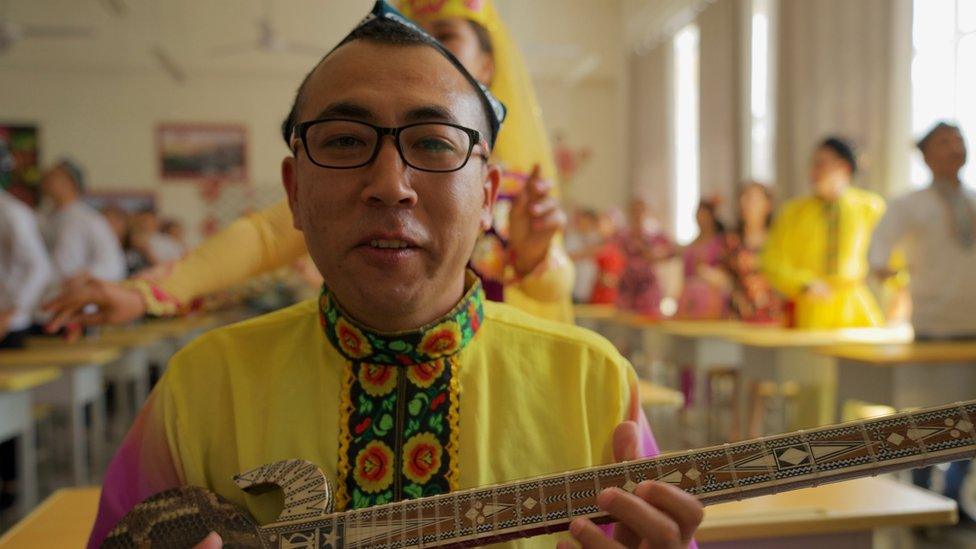UK urges China to give UN access to Xinjiang region
- Published
China’s UK ambassador: 'This is a pure fabrication'
The UK has called on China to allow UN observers "immediate and unfettered access" to the Xinjiang region.
It follows a data leak that revealed how hundreds of thousands of Muslims were mistreated in high security camps.
The official documents, seen by BBC Panorama, show how inmates are locked up, indoctrinated and punished.
China's UK ambassador Liu Xiaoming dismissed the leak, made to 17 media organisations, as fake news.
The leak was made to the International Consortium of Investigative Journalists (ICIJ), external, which worked with partners, including BBC Panorama and The Guardian newspaper in the UK.
The investigation found new evidence which undermines Beijing's claim that the detention camps, which have been built across Xinjiang in the past three years, are for voluntary re-education purposes to counter extremism.
"We have serious concerns about the human rights situation in Xinjiang and the Chinese government's escalating crackdown, in particular the extra-judicial detention of over a million Uighur Muslims and other ethnic minorities," said a Foreign Office spokesperson.
"The UK continues to call on China to allow UN observers immediate and unfettered access to the region."
About a million people - mostly from the Muslim Uighur community - are thought to have been detained without trial.
The leaked Chinese government documents, which the ICIJ have labelled "The China Cables", include a nine-page memo sent out in 2017 by Zhu Hailun, then deputy-secretary of Xinjiang's Communist Party and the region's top security official, to those who run the camps.
The instructions make it clear that the camps should be run as high security prisons, with strict discipline, punishments and no escapes.
"An electric baton to the back of the head" - a former inmate described conditions at a secret camp to the BBC
The memo includes orders to:
"Never allow escapes"
"Increase discipline and punishment of behavioural violations"
"Promote repentance and confession"
"Make remedial Mandarin studies the top priority"
"Encourage students to truly transform"
"[Ensure] full video surveillance coverage of dormitories and classrooms free of blind spots"
The documents reveal how every aspect of a detainee's life is monitored and controlled: "The students should have a fixed bed position, fixed queue position, fixed classroom seat, and fixed station during skills work, and it is strictly forbidden for this to be changed.
"Implement behavioural norms and discipline requirements for getting up, roll call, washing, going to the toilet, organising and housekeeping, eating, studying, sleeping, closing the door and so forth."
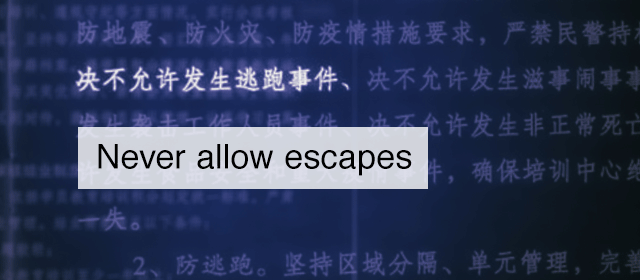
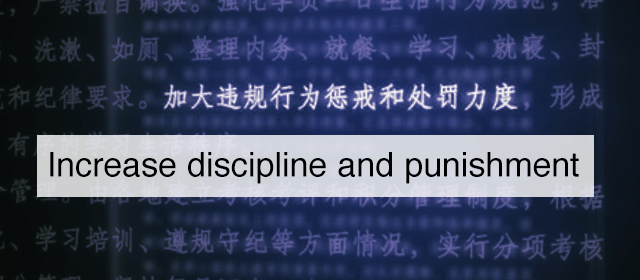
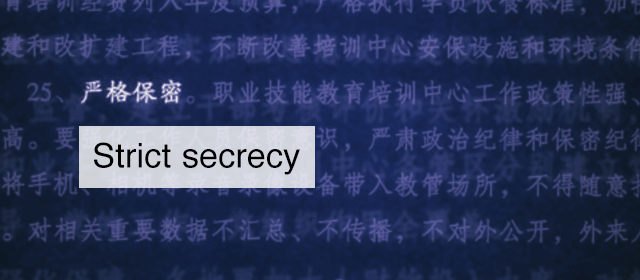
Other documents confirm the extraordinary scale of the detentions. One reveals that 15,000 people from southern Xinjiang were sent to the camps over the course of just one week in 2017.
Sophie Richardson, the China director at Human Rights Watch, said the leaked memo should be used by prosecutors.
"This is an actionable piece of evidence, documenting a gross human rights violation," she said. "I think it's fair to describe everyone being detained as being subject at least to psychological torture, because they literally don't know how long they're going to be there."
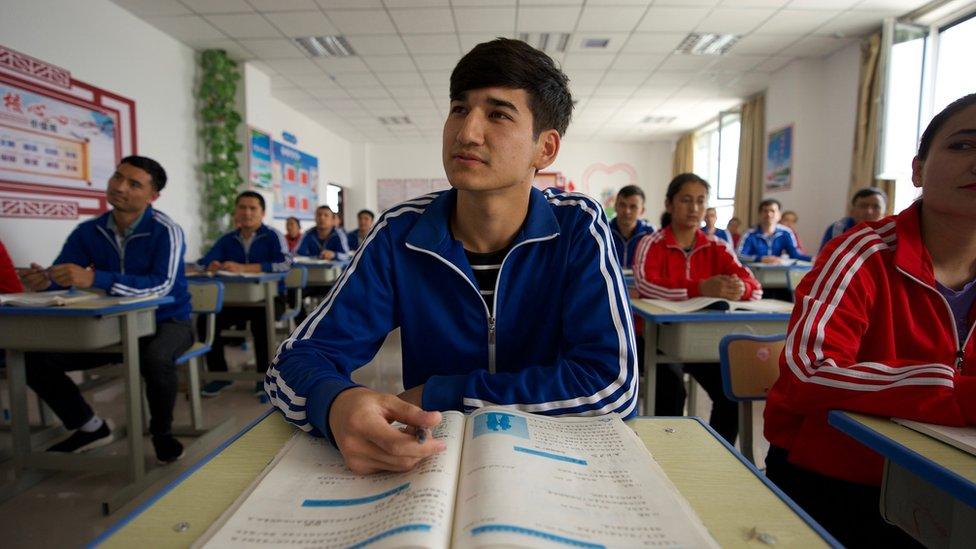
The Chinese government says the camps are for voluntary re-education
Liu Xiaoming, the Chinese ambassador to the UK said the measures had safeguarded local people and there had not been a single terrorist attack in Xinjiang in the past three years.
"The region now enjoys social stability and unity among ethnic groups. People there are living a happy life with a much stronger sense of fulfilment and security.
"In total disregard of the facts, some people in the West have been fiercely slandering and smearing China over Xinjiang in an attempt to create an excuse to interfere in China's internal affairs, disrupt China's counter-terrorism efforts in Xinjiang and thwart China's steady development."
Panorama, How to Brainwash a Million People is on BBC One at 20:30 GMT on Monday 25 November.
- Published12 February 2019
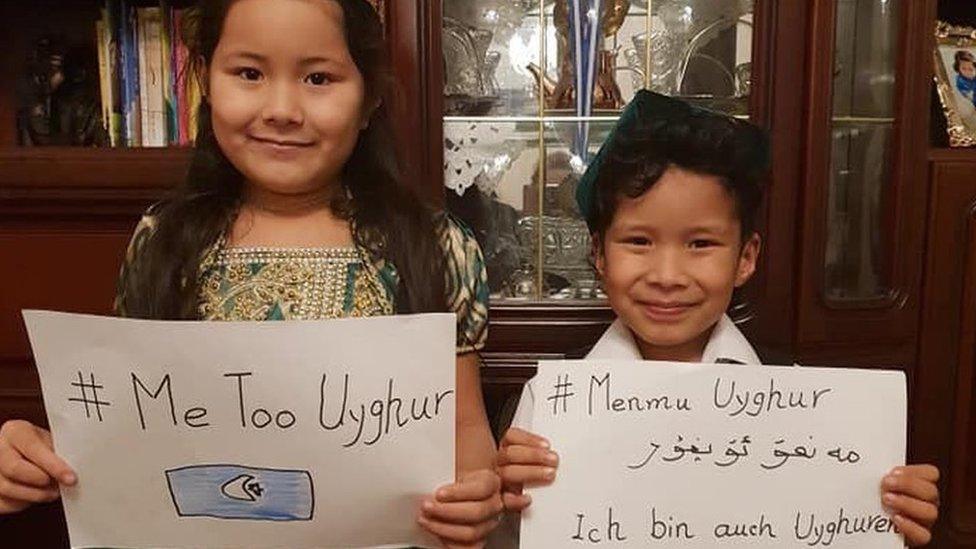
- Published2 May 2019
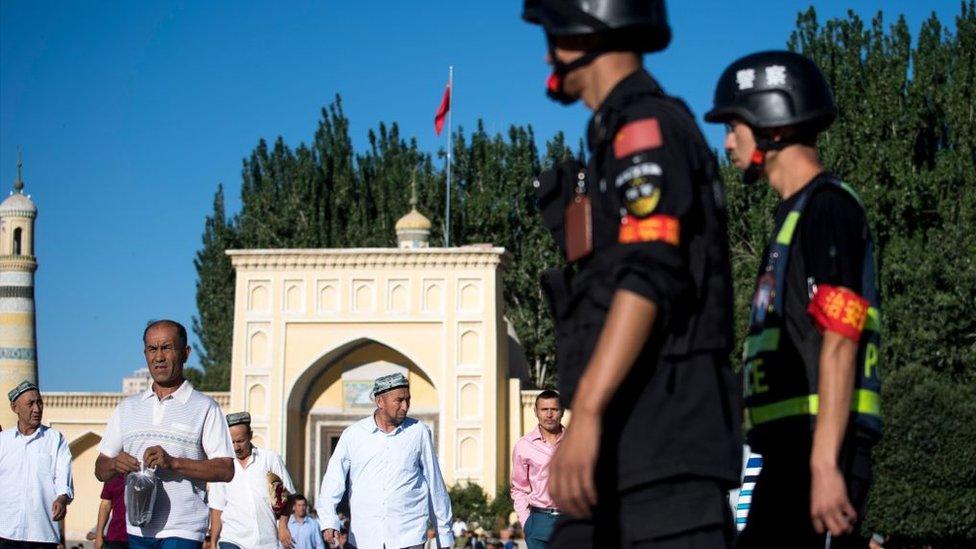
- Published12 February 2019
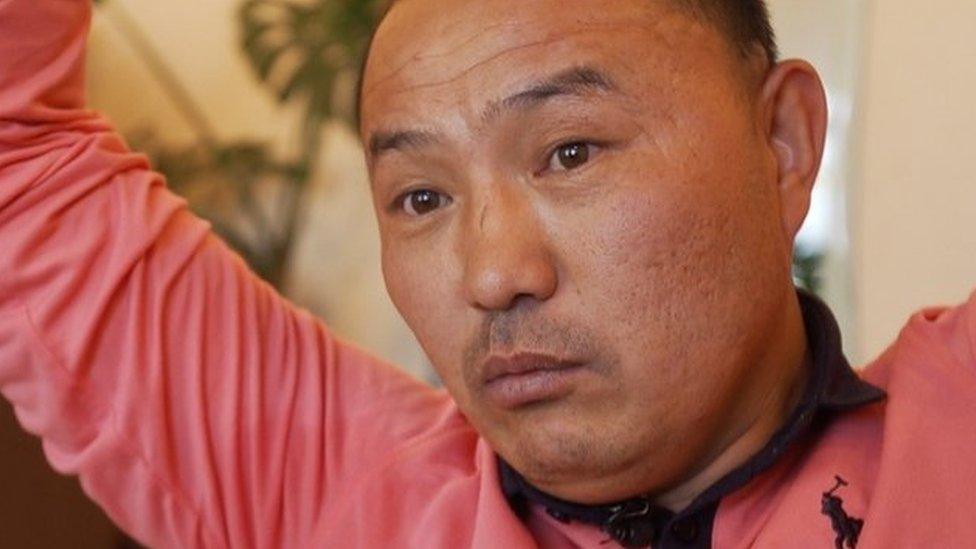
- Published8 November 2018
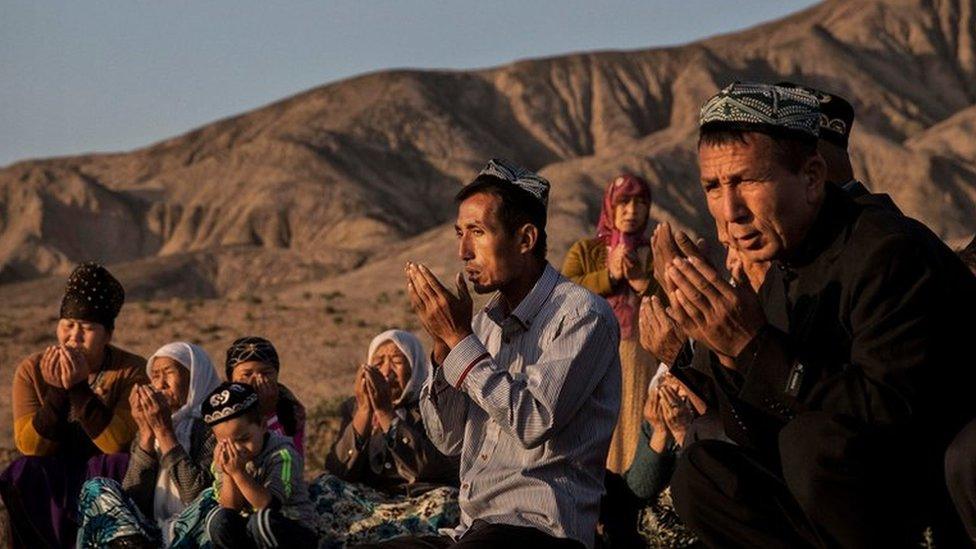
- Published11 October 2019
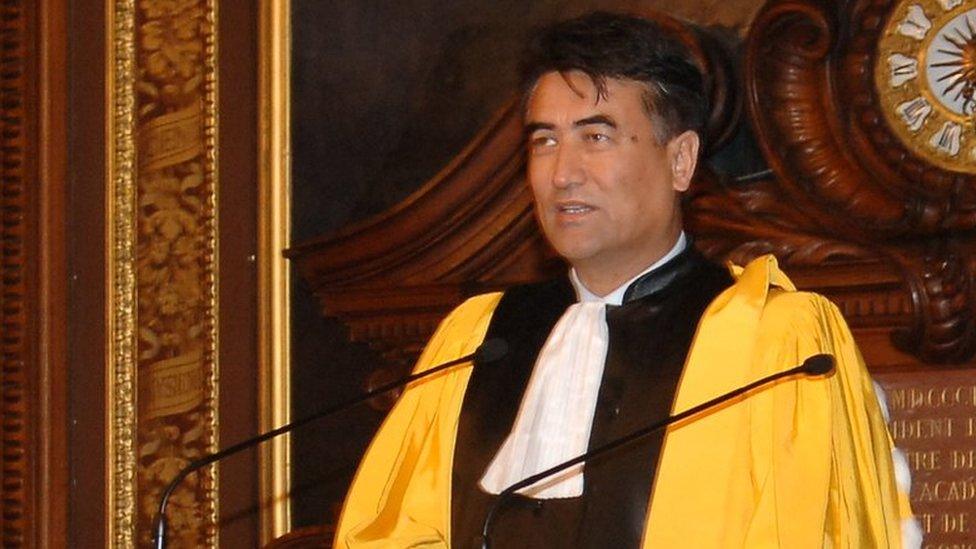
- Published10 October 2018
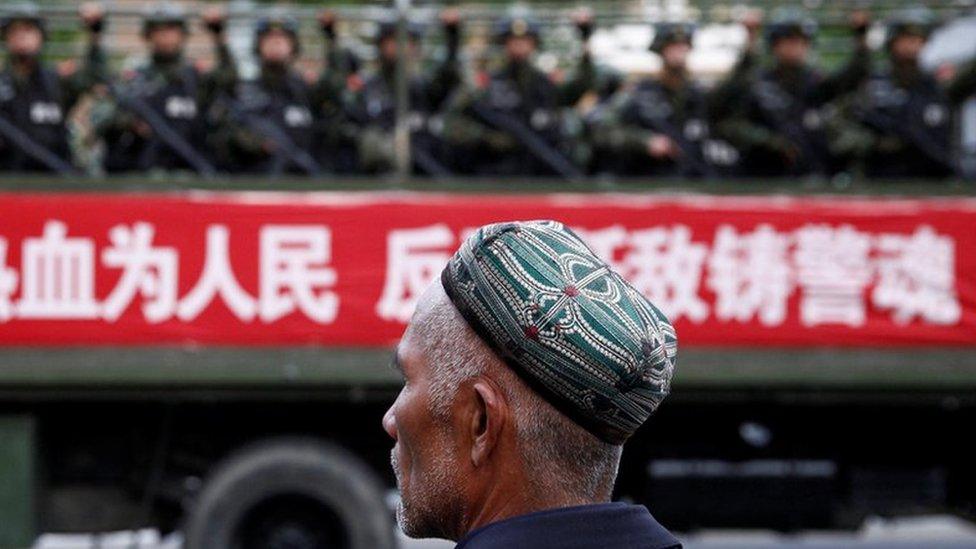
- Published4 July 2019
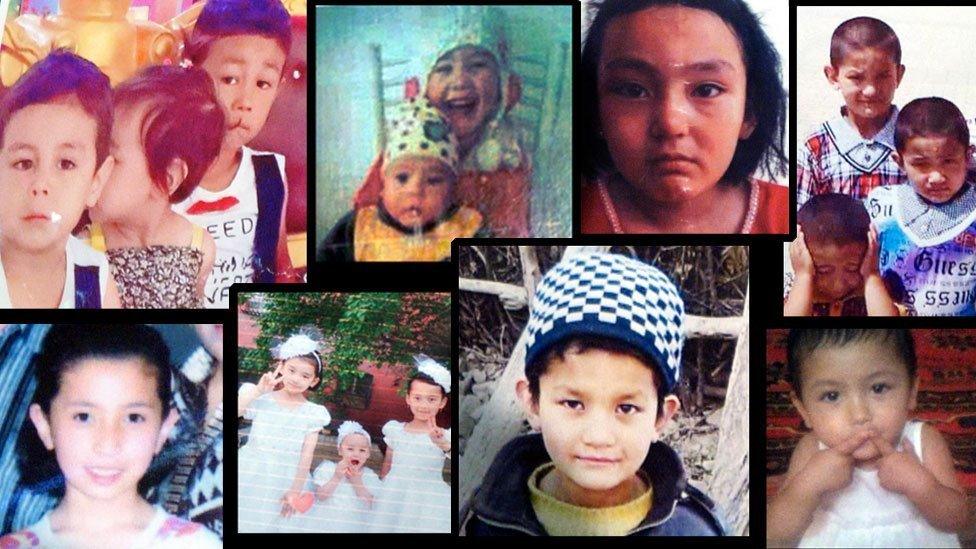
- Published21 June 2019
